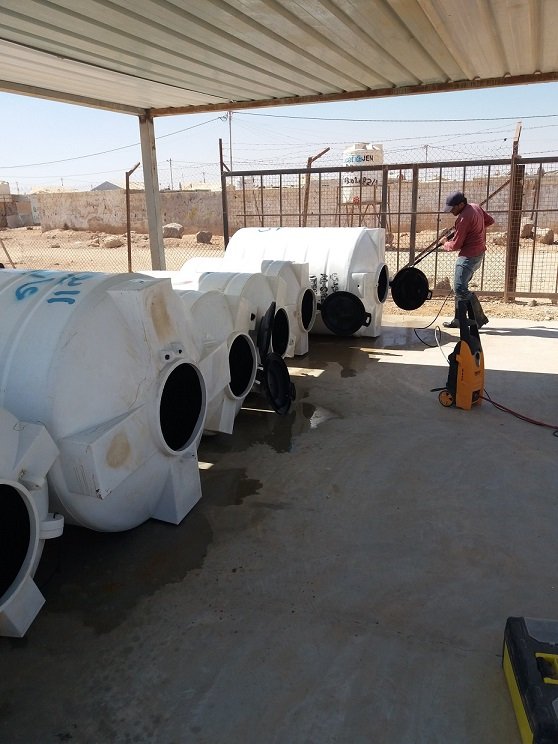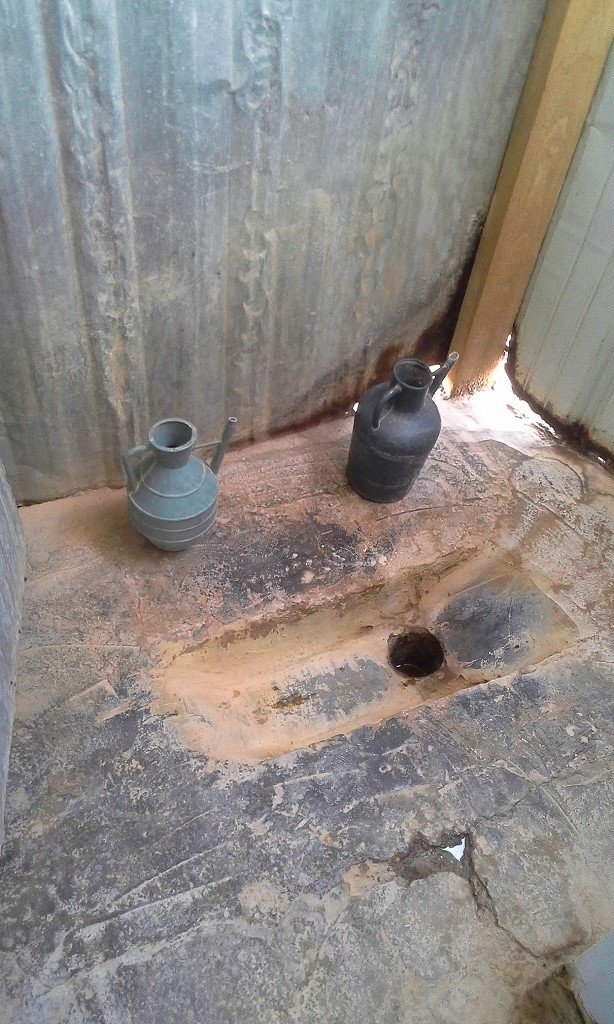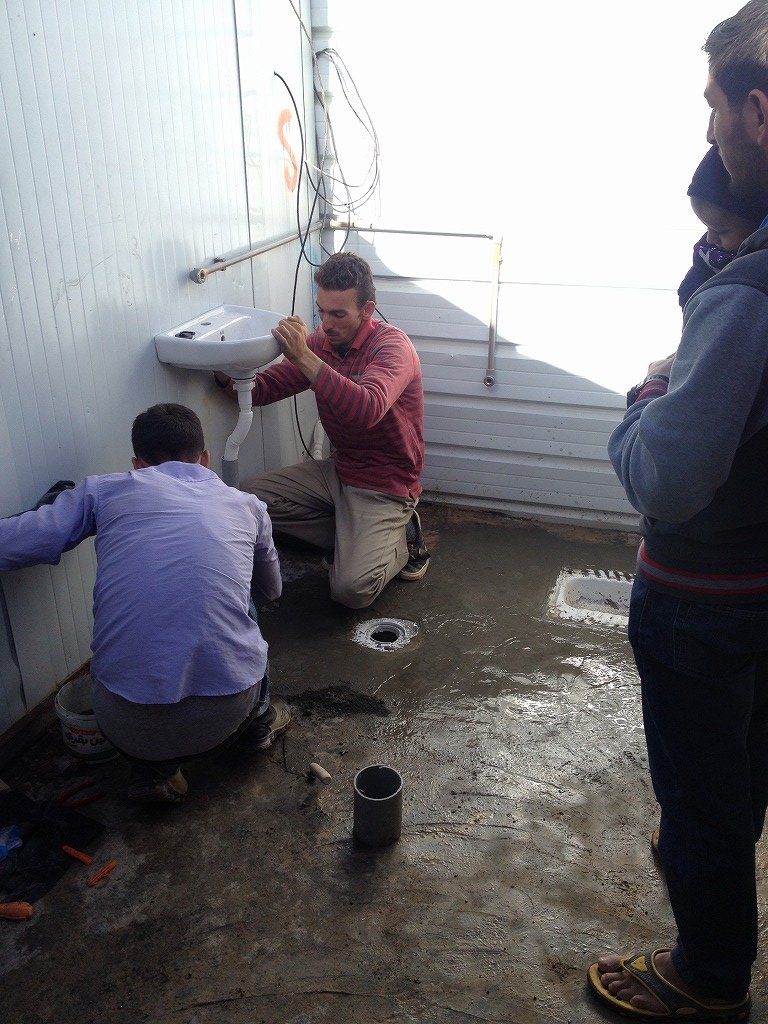By Miyako Hamasaka | PR Manager
The purpose of the activity to maintain the water tanks is to keep water, which the refugees drink, safe and clean.
Lorries carrying water run all around the refugee camps and fill the tanks with water every day. Owing to hot weather and dust in air, there is a possibility of spreading of bacteria everywhere in the tank and change in water quality, thereby causing bacterial outbreak or increase in deposit and algae.
In the past, JEN used to disinfected public water tanks of the 3rd, 4th, 5th section at least twice a year as a folk group supporting water–hygiene activity. Later on, as more and more people came to have their own tank, JEN also began to disinfect private water tanks. The total number of water tanks disinfected in these 3 sections has amounted to 1,000.
The maintenance team collects water tanks from people and disinfects them. At the first, tanks are washed with detergent and water, then disinfected with chlorine, and finally rinsed. JEN works carefully not to leave chlorine of more than 1.8ppm.
There used to be a problem with people not leaving their tanks to us, as worrying about the tanks not being returned to them or being exchanged to old ones.
In order to solve such problem, efforts were made to disseminate the right information to people as well as the merits and importance of tank disinfection.
Originally, as we had built up relationship of mutual trust between people of 3rd-5th section, we succeeded in persuading all of them. Also, this time operation, we could return water tanks to everyone at the end of working day as well.
At this time, JEN’s role is in charge of surveying the chlorine rate left in the tank after disinfection. We aim to obtain a numerical value as exactly as possible and let people know the water in the tank is safe to drink.
Moreover, all of the JEN staff has a strong motivation every time we obtain a good result.
We believe that monitoring an index and an evaluating result of work is indispensable in providing a supporting hand to the refugees properly.
***
Many people living in the camp have begun installing toilets for their dwellings. Some people install the toilets themselves, while others ask for help from other refugees who have the skills to complete the task.
As a result, only a few people are coming to use the public toilet facilities built by support groups several years ago. The toilets here are approaching the end of their duties.
Meanwhile, there are families who remain unable to have a household toilet due to a lack of skills and money.
Moreover, even if a household toilet has been installed, many of these facilities consist of just a hole in the floor, with no walls around it, no windows for a cross-breeze, no door locks, and so on, failing to meet the minimum requirements set by organizations involved in water, sanitation and hygiene programmes.
To help refugees live in dignity, JEN is rushing to carry out construction work to improve these household toilets.
Project reports on GlobalGiving are posted directly to globalgiving.org by Project Leaders as they are completed, generally every 3-4 months. To protect the integrity of these documents, GlobalGiving does not alter them; therefore you may find some language or formatting issues.
If you donate to this project or have donated to this project, you can receive an email when this project posts a report. You can also subscribe for reports without donating.


